Strictly Personal
On campaign gaffes, missiles and banters by Simon Kolawole
Published
1 year agoon

The best way to enjoy electioneering seasons is to be emotionally detached. The moment you are a player — or you are emotionally invested — you cannot have fun to the fullest. There will be too much tension and excitement racing through your blood. Too much prejudice will block your sight. You will cry when you should be laughing and laugh when you should be crying. Although I can bet that everybody (including myself) has a soft spot for one presidential candidate or the other, everybody’s emotions are not on the same wavelength. There are levels to these things. Less than 10 weeks to the presidential election, I can bet that most people already know where they belong.
The campaign season has given us plenty entertainment and worries. Asiwaju Bola Ahmed Tinubu, the APC presidential candidate, has been under the spotlight for his gaffes. And there are plenty of them, the chief being his closing prayer at the flag-off of his campaign in Jos, Plateau state, on November 15. He was saying “God bless PD…” before changing his supplication to “God bless APC”. This was particularly strange. He has been an opponent of PDP since 1999, so I would not expect him to invoke God’s blessings on them, not when he is the APC candidate. Except, of course, he meant to say “PDM” which his political associates in 1991/92 formed ahead of joining the PDP in 1998.
One of those associates was Alhaji Atiku Abubakar, the vice-president from 1999 to 2007 and the presidential flagbearer of the PDP in the 2023 elections. Atiku was the brain behind PDM (Peoples Democratic Movement) made up of several political associates of the late Maj-Gen Shehu Musa Yar’Adua, the former chief of staff, supreme headquarters who was second-in-command to Gen Olusegun Obasanjo as military head of state (1976-1979). PDM was the strongest faction of the PDP from 1999 to 2003 before Obasanjo, now civilian president, dealt a fatal blow on it while disrupting Atiku’s plan to unseat him. Obasanjo went on to make sure Atiku did not succeed him in 2007.
Why would Tinubu want God to bless PDP or PDM, no matter how close he was, or is, to Atiku? They are now political rivals, for crying out loud! Well, one good turn deserves another. Atiku repaid Tinubu’s friendship with his own prayer on December 13 — also in Jos! There must be something about Jos. In his remarks at the rally, Atiku was shouting “God bless A…” before saying “I mean PDP!” Nigerians are making much of the fact that both gaffes happened on a Tuesday, but I am not aware that Tuesdays carry any significance in superstition. I know of Mondays, which foretell how the week would go. Caution: I am not an expert on superstitions, so don’t trust my analysis.
One gaffe that did not trend was committed by Mr Peter Obi, the presidential candidate of the Labour Party, in nearby Lafia, Nasarawa state, on October 13. This preceded the “God bless” syndrome. Speaking at his rally, Obi said: “Nasarawa is big… it is a great country.” His supporters said he meant Nasarawa can be a great country if it were on its own, since Israel is not as big. Nice one! After all, Nasarawa, like Israel, is rich in agriculture. And Israel is a great country. Don’t you just love the Obi-dients! But, seriously, given that Nasarawa was created out of Plateau in 1996, are there demons of gaffe in that axis that we need to cast out? Hint: some pastors can make money from it.
Another interesting thing this season is the townhall meetings and TV debates. The trailblazing THISDAY/Arise group is organising a series. I hereby confess that I love debates. I enjoyed the 1993 face-off between Chief MKO Abiola and Alhaji Bashir Tofa. However, Tinubu has ignored invitations by THISDAY/Arise — and the group has in turn accused him of trying to undermine free speech. A full-blown war has now ensued between both camps. Tinubu’s media managers have maintained that their principal has his own media engagement plan and excluding THISDAY/Arise is not the same as excluding the entire Nigerian media. That is the matter we have been trying to settle since.
But why do favourite presidential candidates shun debates? Ahead of the 1999 presidential election, a TV debate was organised between Obasanjo, the PDP flagbearer, and Chief Olu Falae, the joint candidate of the Alliance for Democracy (AD)/All Peoples Party (APP) which you can easily call the APC of today. Obasanjo, who was generally believed to be the candidate of the establishment, did not turn up for the scheduled two-hour debate. A disappointed Falae said: “It is an understatement to say I am embarrassed to sit alone and be debating with myself.” It had to be reduced to one hour, more like a TV interview. Obasanjo’s handlers said he was not aware of the well-publicised event.
The conclusion in the AD/APP camp then was that Falae, an economist trained at the University of Ibadan and Yale University, was going to tear Obasanjo to pieces. There were a few people who believed that the Abiola/Tofa debate played a major role in the way Nigerians voted on June 12, 1993 and Obasanjo did not want to be outshined. I don’t know how true. All these were conjectures. Whatever the case was, Obasanjo did not attend the 2003 debate either. That one could be explained this way: he was the sitting president and his record was going to be savaged by his opponents, including Maj-Gen Muhammadu Buhari, Dim Emeka Ojukwu and Pastor Chris Okotie.
While what Obasanjo did in 2003 was basically an interview with a panel of journalists, Alhaji Umaru Musa Yar’Adua, the PDP candidate, did not even make media appearances in 2007. I remembered he only visited Mr Nduka Obaigbena, THISDAY chairman, at his Ikoyi home and granted something like an interview. He fell ill during the campaign and some rallies went on without him. When rumours started circulating on the internet and via SMS (there was no WhatsApp then) that Yar’Adua was dead, Obasanjo had to call him on live TV to ask, rather hilariously, “Umoru, are you dead?” Yar’Adua went on to win the election which, even in his own opinion, was a shambles.
The conclusion of many analysts was that Yar’Adua would still have won without the performance-enhancing drugs administered by the Independent National Electoral Commission (INEC) under the leadership of the inimitable Prof Maurice Iwu. Sadly, Yar’Adua was not alive to run for a second term. Dr Goodluck Jonathan, his deputy, took over. He too did not participate in the 2011 TV debate. At least he had a PhD, so the Falae scenario could not have been his worry. And he had only been in office for one year, so there was not much to criticise him for. The NTA finally organised what was really an interview for him. He still won the election, like Obasanjo and Yar’Adua did before him.
Ironically, Jonathan badly wanted a debate with Buhari in 2015. Even though his own five-year record as president risked coming under attack, including issues of corruption and Boko Haram insurgency, Jonathan was obviously finally confident that Buhari would not outperform him in a debate, so he wanted it. Buhari, who debated Prof Pat Utomi in 2007, declined. Jonathan, instead, had to debate with Mr Godson Okoye of the United Democratic Party (UDP), Mrs Remi Soniaya of the Kowa Party, Chief Chekwas Okorie of the United Progressive Party (UPP), and Mr Martin Onovo of the National Conscience Party (NCP). Need I remind us that Buhari went on to win the election?
In 2019, Buhari copied Jonathan by refusing to turn up for the debate. His record was going to be under attack, obviously, with Atiku tipped to do better in a televised debate. That Buhari went on to win the election without debating might have strengthened the unwanted tradition in our presidential electioneering where sitting presidents or bookmakers’ favourites do not turn up. Tinubu’s media managers have made it clear that he would not attend the THISDAY/Arise series because there is a plot to embarrass him. I do not see Tinubu participating in any debate either — if history is anything to go by. Should we, therefore, conclude that presidential debates are jinxed?
My sense is that those rated as favourites do not want to debate because, while there is a consensus that debates don’t determine how most Nigerians vote, a slip of tongue may have a negative effect on them. It is more about not wanting to surrender the advantage so as not to lose the momentum. This has been recurring. Also, all the other candidates will be focusing on attacking the so-called front-runners. In the process, their opponents may say something really damaging that will cost them some votes. Some
would prefer to be attacked in absentia than being embarrassed on air by their opponents. From where I am watching proceedings, that is my usual reading of the reluctance.
Putting all the brickbats and missiles aside, we are faced with the reality that there is no Nigerian law compelling candidates to debate. It is more of a tradition. I love debates particularly because you can gauge the level of knowledge and composure among the candidates. However, I cannot vouch that debates will determine the outcome of elections. Just like the issue of vote-buying, my understanding of the Nigerian electorate is that elections are won more based on political networks, affinities, and primordial sentiments rather than academic credentials such as PhD and ability to debate. More so, you may speak smooth English during debates and still be a disaster in office.
All said, though, I am enjoying this campaign season without tears. The cheeky rascal in me is loving some of the missiles being exchanged between Tinubu and Atiku. They are comical. I love the Dubai digs and the Chatham House taunts. I am not enjoying much of the Obi vs Tinubu jibes because I feel they are too deep. Not surprisingly, there is little or nothing in the Atiku vs Obi axis, probably because until a few months ago, Obi was a PDP member. He was Atiku’s running mate in 2019. The affinity is too fresh to be discarded just like that. I can understand. But that would not stop me from enjoying all the drama this electioneering has to offer. I need another bag of popcorn, please.
You may like
-


Nigerian govt shuts Chinese supermarket over ‘no-Nigerian shopper’ allegation
-
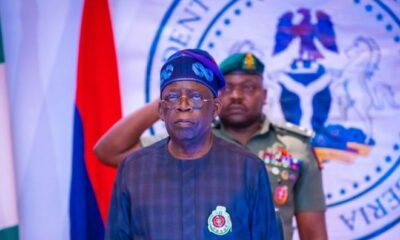

Nigeria: President Tinubu identifies illegal mining as source of terrorism financing
-


Nigeria wants $2.25 billion World Bank loan
-
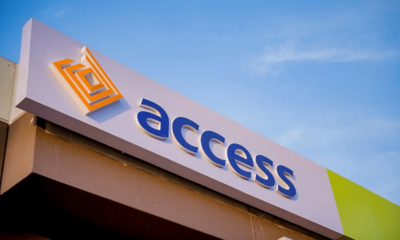

Nigeria’s Access Bank says its N365bn capital raise to be fully digital
-
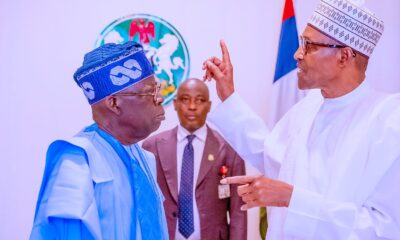

Nigeria: Unlike Buhari, Tinubu’s govt has not borrowed from the central bank— Finance Minister
-


Yoruba secessionist group seeks exit from Nigeria, writes open letter to Tinubu
Strictly Personal
Air Peace, capitalism and national interest, By Dakuku Peterside
Published
1 week agoon
April 16, 2024
Nigerian corporate influence and that of the West continue to collide. The rationale is straightforward: whereas corporate activity in Europe and America is part of their larger local and foreign policy engagement, privately owned enterprises in Nigeria or commercial interests are not part of Nigeria’s foreign policy ecosystem, neither is there a strong culture of government support for privately owned enterprises’ expansion locally and internationally.
The relationship between Nigerian businesses and foreign policy is important to the national interest. When backing domestic Nigerian companies to compete on a worldwide scale, the government should see it as a lever to drive foreign policy, and national strategic interest, promote trade, enhance national security considerations, and minimize distortion in the domestic market as the foreign airlines were doing, boost GDP, create employment opportunities, and optimize corporate returns for the firms.
Admitted nations do not always interfere directly in their companies’ business and commercial dealings, and there are always exceptions. I can cite two areas of exception: military sales by companies because of their strategic implications and are, therefore, part of foreign and diplomatic policy and processes. The second is where the products or routes of a company have implications for foreign policy. Air Peace falls into the second category in the Lagos – London route.
Two events demonstrate an emerging trend that, if not checked, will disincentivize Nigerian firms from competing in the global marketplace. There are other notable examples, but I am using these two examples because they are very recent and ongoing, and they are typological representations of the need for Nigerian government backing and support for local companies that are playing in a very competitive international market dominated by big foreign companies whose governments are using all forms of foreign policies and diplomacy to support and sustain.
The first is Air Peace. It is the only Nigerian-owned aviation company playing globally and checkmating the dominance of foreign airlines. The most recent advance is the commencement of flights on the Lagos – London route. In Nigeria, foreign airlines are well-established and accustomed to a lack of rivalry, yet a free-market economy depends on the existence of competition. Nigeria has significantly larger airline profits per passenger than other comparable African nations. Insufficient competition has resulted in high ticket costs and poor service quality. It is precisely this jinx that Air Peace is attempting to break.
On March 30, 2024, Air Peace reciprocated the lopsided Bilateral Air Service Agreement, BASA, between Nigeria and the United Kingdom when the local airline began direct flight operations from Lagos to Gatwick Airport in London. This elicited several reactions from foreign airlines backed by their various sovereigns because of their strategic interest. A critical response is the commencement of a price war. Before the Air Peace entry, the price of international flight tickets on the Lagos-London route had soared to as much as N3.5 million for the economy ticket. However, after Air Peace introduced a return economy class ticket priced at N1.2 million, foreign carriers like British Airways, Virgin Atlantic, and Qatar Airways reduced their fares significantly to remain competitive.
In a price war, there is little the government can do. In an open-market competitive situation such as this, our government must not act in a manner that suggests it is antagonistic to foreign players and competitors. There must be an appearance of a level playing field. However, government owes Air Peace protection against foreign competitors backed by their home governments. This is in the overall interest of the Nigerian consumer of goods and services. Competition history in the airspace works where the Consumer Protection Authority in the host country is active. This is almost absent in Nigeria and it is a reason why foreign airlines have been arbitrary in pricing their tickets. Nigerian consumers are often at the mercy of these foreign firms who lack any vista of patriotism and are more inclined to protect the national interest of their governments and countries.
It would not be too much to expect Nigerian companies playing globally to benefit from the protection of the Nigerian government to limit influence peddling by foreign-owned companies. The success of Air Peace should enable a more competitive and sustainable market, allowing domestic players to grow their network and propel Nigeria to the forefront of international aviation.
The second is Proforce, a Nigerian-owned military hardware manufacturing firm active in Rwanda, Chad, Mali, Ghana, Niger, Burkina Faso, and South Sudan. Despite the growing capacity of Proforce in military hardware manufacturing, Nigeria entered two lopsided arrangements with two UAE firms to supply military equipment worth billions of dollars , respectively. Both deals are backed by the UAE government but executed by UAE firms.
These deals on a more extensive web are not unconnected with UAE’s national strategic interest. In pursuit of its strategic national interest, India is pushing Indian firms to supply military equipment to Nigeria. The Nigerian defence equipment market has seen weaker indigenous competitors driven out due to the combination of local manufacturers’ lack of competitive capacity and government patronage of Asian, European, and US firms in the defence equipment manufacturing sector. This is a misnomer and needs to be corrected.
Not only should our government be the primary customer of this firm if its products meet international standards, but it should also support and protect it from the harsh competitive realities of a challenging but strategic market directly linked to our national military procurement ecosystem. The ability to produce military hardware locally is significant to our defence strategy.
This firm and similar companies playing in this strategic defence area must be considered strategic and have a considerable place in Nigeria’s foreign policy calculations. Protecting Nigeria’s interests is the primary reason for our engagement in global diplomacy. The government must deliberately balance national interest with capacity and competence in military hardware purchases. It will not be too much to ask these foreign firms to partner with local companies so we can embed the technology transfer advantages.
Our government must create an environment that enables our local companies to compete globally and ply their trades in various countries. It should be part of the government’s overall economic, strategic growth agenda to identify areas or sectors in which Nigerian companies have a competitive advantage, especially in the sub-region and across Africa and support the companies in these sectors to advance and grow to dominate in the African region with a view to competing globally. Government support in the form of incentives such as competitive grants ,tax credit for consumers ,low-interest capital, patronage, G2G business, operational support, and diplomatic lobbying, amongst others, will alter the competitive landscape. Governments and key government agencies in the west retain the services of lobbying firms in pursuit of its strategic interest.
Nigerian firms’ competitiveness on a global scale can only be enhanced by the support of the Nigerian government. Foreign policy interests should be a key driver of Nigerian trade agreements. How does the Nigerian government support private companies to grow and compete globally? Is it intentionally mapping out growth areas and creating opportunities for Nigerian firms to maximize their potential? Is the government at the domestic level removing bottlenecks and impediments to private company growth, allowing a level playing field for these companies to compete with international companies?
Why is the government patronising foreign firms against local firms if their products are of similar value? Why are Nigerian consumers left to the hands of international companies in some sectors without the government actively supporting the growth of local firms to compete in those sectors? These questions merit honest answers. Nigerian national interest must be the driving factor for our foreign policies, which must cover the private sector, just as is the case with most developed countries. The new global capitalism is not a product of accident or chance; the government has choreographed and shaped it by using foreign policies to support and protect local firms competing globally. Nigeria must learn to do the same to build a strong economy with more jobs.
Strictly Personal
This is chaos, not governance, and we must stop it, By Tee Ngugi
Published
2 weeks agoon
April 10, 2024
The following are stories that have dominated mainstream media in recent times. Fake fertiliser and attempts by powerful politicians to kill the story. A nation of bribes, government ministries and corporations where the vice is so routine that it has the semblance of policy. Irregular spending of billions in Nairobi County.
Billions are spent in all countries on domestic and foreign travel. Grabbing of land belonging to state corporations, was a scam reminiscent of the Kanu era when even public toilets would be grabbed. Crisis in the health and education sectors.
Tribalism in hiring for state jobs. Return of construction in riparian lands and natural waterways. Relocation of major businesses because of high cost of power and heavy taxation. A tax regime that is so punitive, it squeezes life out of small businesses. Etc, ad nauseam.
To be fair, these stories of thievery, mismanagement, negligence, incompetence and greed have been present in all administrations since independence.
However, instead of the cynically-named “mama mboga” government reversing this gradual slide towards state failure, it is fuelling it.
Alternately, it’s campaigning for 2027 or gallivanting all over the world, evoking the legend of Emperor Nero playing the violin as Rome burned.
A government is run based on strict adherence to policies and laws. It appoints the most competent personnel, irrespective of tribe, to run efficient departments which have clear-cut goals.
It aligns education to its national vision. Its strategies to achieve food security should be driven by the best brains and guided by innovative policies. It enacts policies that attract investment and incentivize building of businesses. It treats any kind of thievery or negligence as sabotage.
Government is not a political party. Government officials should have nothing to do with political party matters. They should be so engaged in their government duties that they literally would not have time for party issues. Government jobs should not be used to reward girlfriends and cronies.
Government is exhausting work undertaken because of a passion to transform lives, not for the trappings of power. Government is not endless campaigning to win the next election. To his credit, Mwai Kibaki left party matters alone until he had to run for re-election.
We have corrupted the meaning of government. We have parliamentarians beholden to their tribes, not to ideas.
We have incompetent and corrupt judges. We have a civil service where you bribe to be served. Police take bribes to allow death traps on our roads. We have urban planners who plan nothing except how to line their pockets. We have regulatory agencies that regulate nothing, including the intake of their fat stomachs.
We have advisers who advise on which tenders should go to whom. There is no central organising ethos at the heart of government. There is no sense of national purpose. We have flurries of national activities, policies, legislation, appointments which don’t lead to meaningful growth. We just run on the same spot.
Tee Ngugi is a Nairobi-based political commentator
EDITOR’S PICK


Egypt reclaims 3,400-year-old stolen statue of King Ramses II
Egypt has received a 3,400-year-old statue depicting the head of King Ramses II that was stolen and smuggled out of...
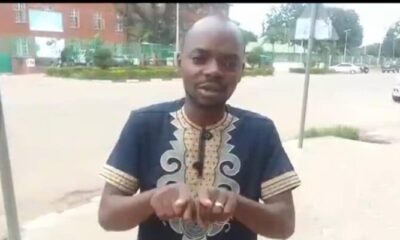

Sign language interpreter, Kunda, seeks inclusivity in media rights agenda
An inclusive society is crucial for a nation’s human and economic development in the modern era. In this edition of...
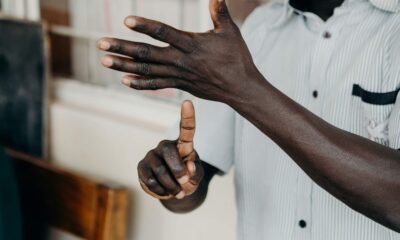

Sign language interpreter, Kunda, seeks inclusivity in media rights agenda (video)
An inclusive society is crucial for a nation’s human and economic development in the modern era. In this edition of...


Educationist challenges media freedom norms, cautions against misuse of freedom of expression
Geshom Banda, Deputy Head Teacher at Hillside Primary School, presents a contrasting perspective amidst discussions on media freedom and digital...


Nigerian govt shuts Chinese supermarket over ‘no-Nigerian shopper’ allegation
Nigeria’s Federal Competition and Consumer Protection Commission has shut down a Chinese store in Abuja, the country’s capital, because it...


Nigeria: President Tinubu identifies illegal mining as source of terrorism financing
Nigeria’s President Bola Tinubu has identified illegal mining activities as a major source of terrorism financing in the country and...


Nigeria wants $2.25 billion World Bank loan
Nigeria’s Finance Minister, Wale Edun, has revealed that the country is seeking up to $2.25 billion in World Bank loans...
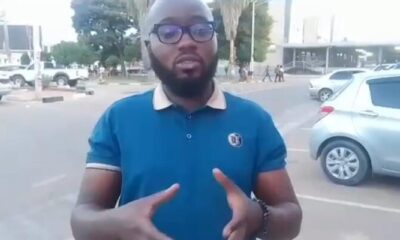

‘Complex, contentious,’ media enthusiast says media rights often depend on goodwill of political leadership (video)
Kitwe Press Club spokesperson, Michael Kaluba, has described the media landscape in Zambia as complex and contentious. In a conversation...


UN signs MoU with Kenya’s Konza Technopolis
The United Nations has signed a Memorandum of Understanding (MoU) with Kenya’s Konza Technopolis that will provide a wide range...
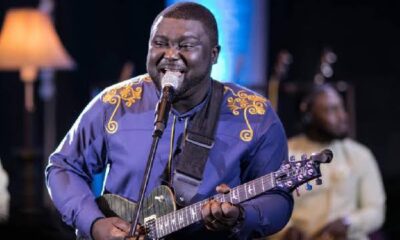

Ghana mourns as top gospel music icon Koda passes away
The Ghanaian entertainment industry has, once again, been thrown into mourning following the death of renowned gospel musician, Kofi Owusu...
Trending
-
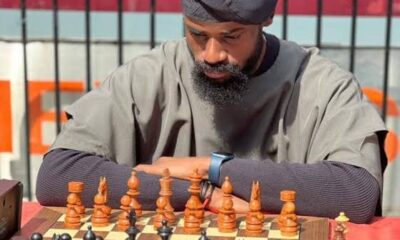
 Behind the News2 days ago
Behind the News2 days agoBehind the News: All the backstories to our major news this week
-
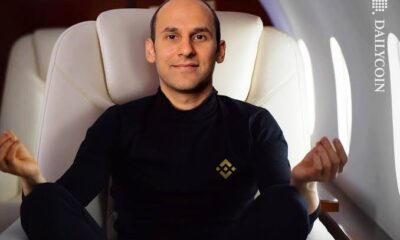
 Metro2 days ago
Metro2 days agoBinance executive who escaped from Nigeria arrested in Kenya
-

 Culture12 hours ago
Culture12 hours agoEgypt reclaims 3,400-year-old stolen statue of King Ramses II
-

 Metro19 hours ago
Metro19 hours agoNigerian govt shuts Chinese supermarket over ‘no-Nigerian shopper’ allegation


